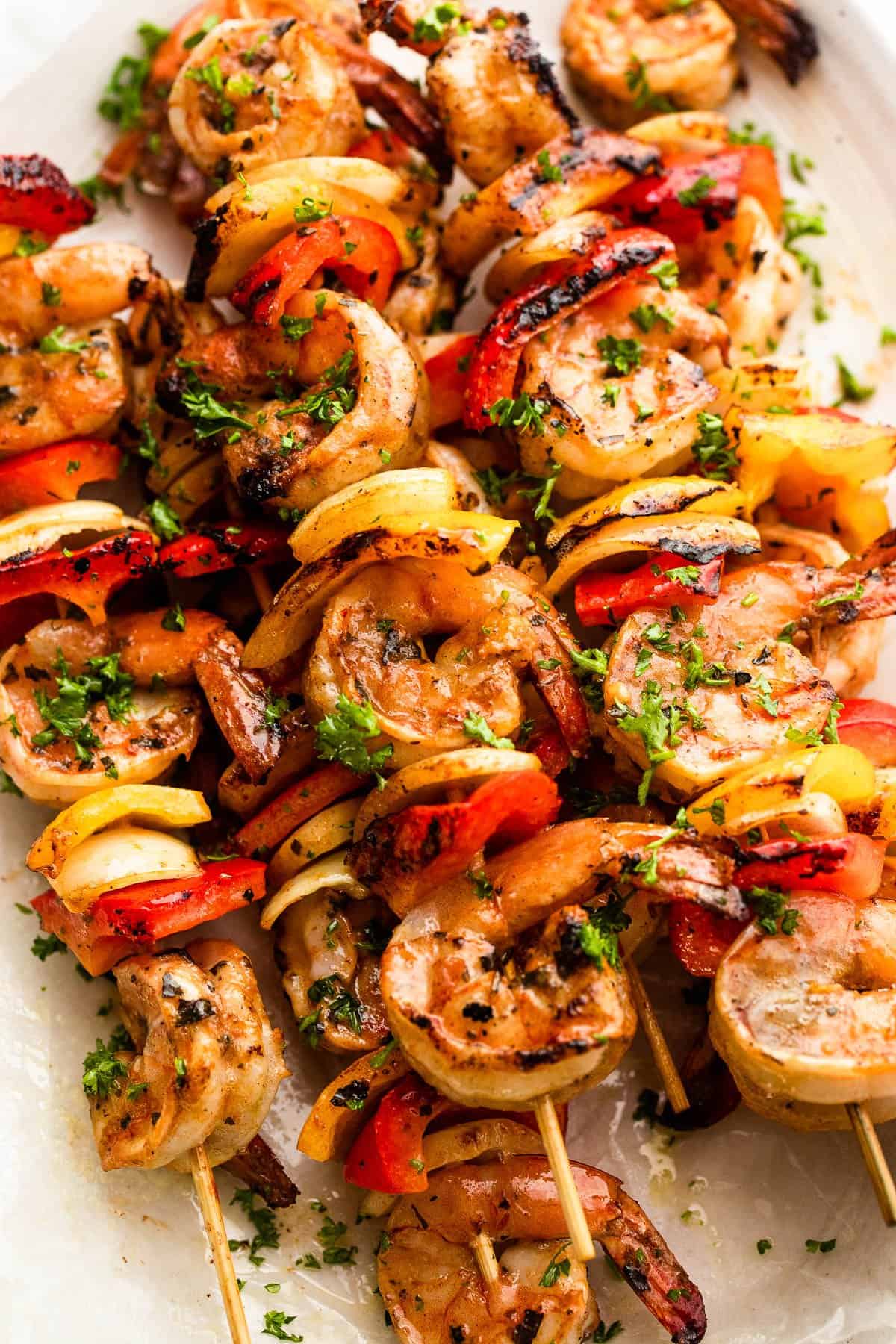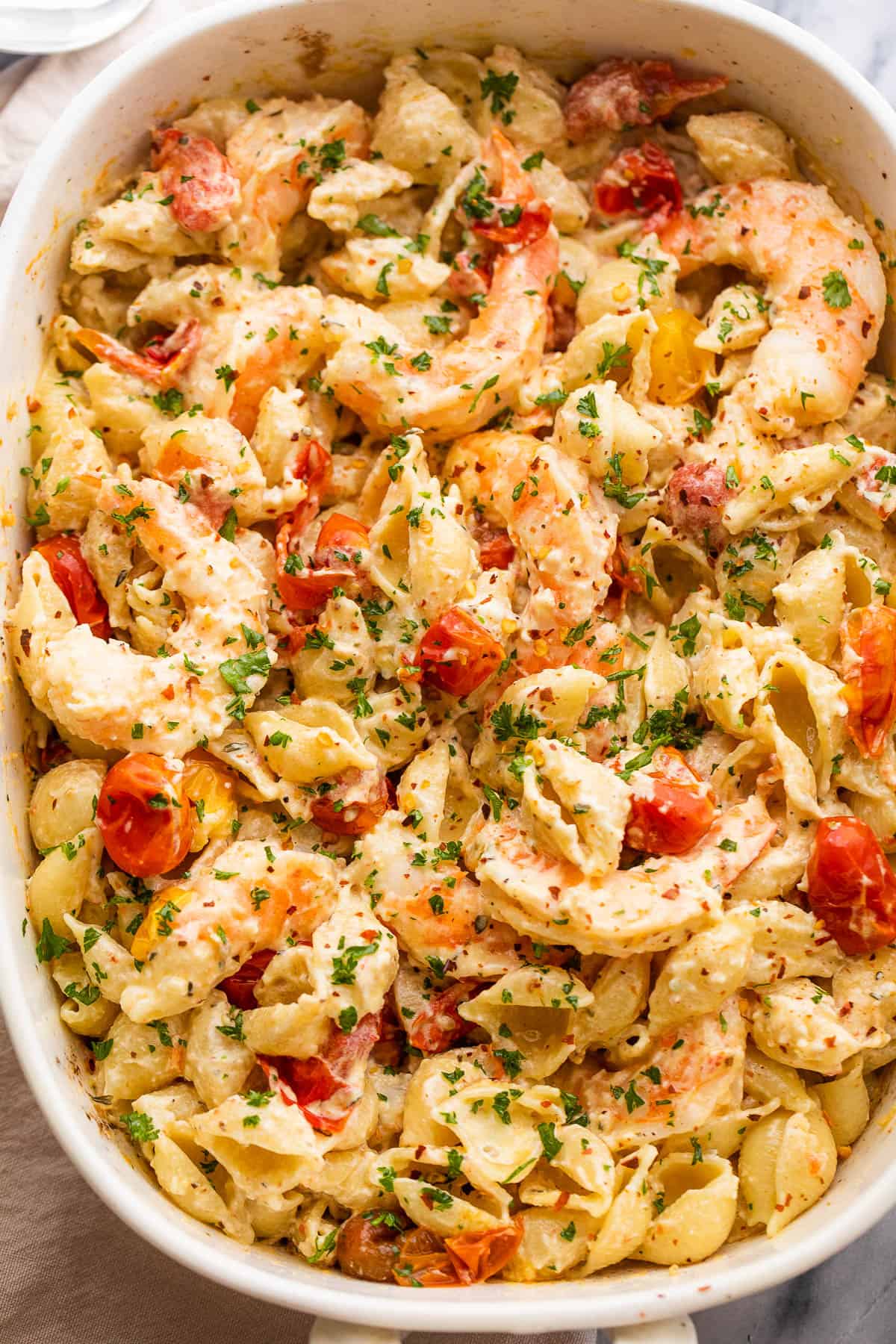Shrimp: Important Facts, Health Benefits, and Recipes
Explore the health benefits, history, and culinary uses of shrimp in our ultimate guide, and learn how to make informed choices for a nutritious and delicious seafood experience.
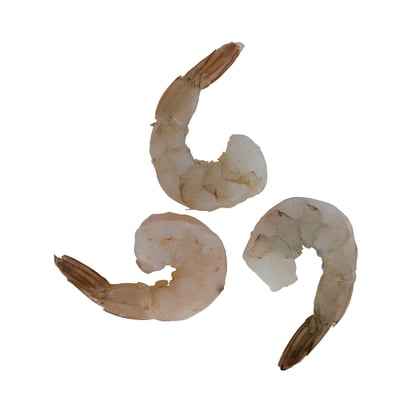
Best Shrimp Recipes
-
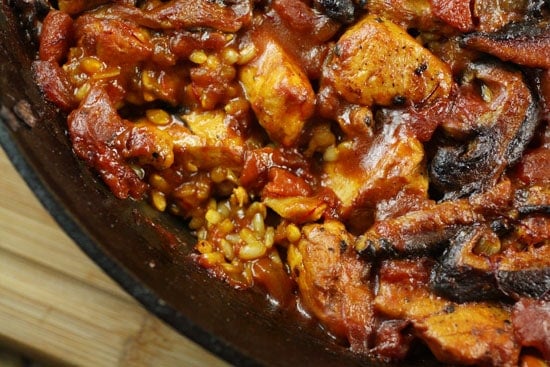
-
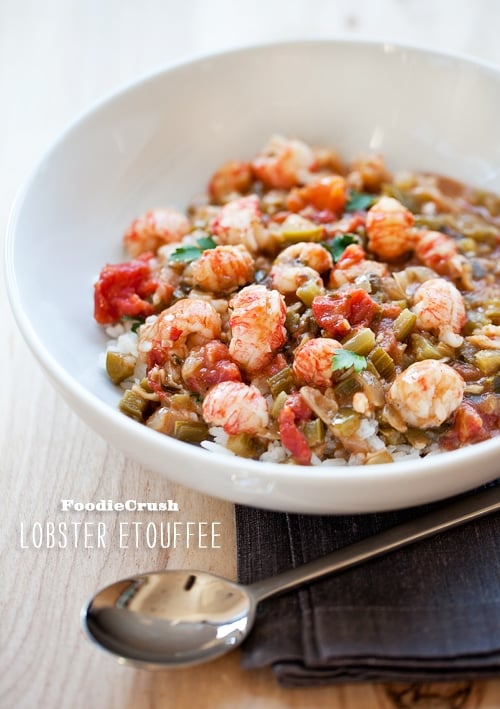
-
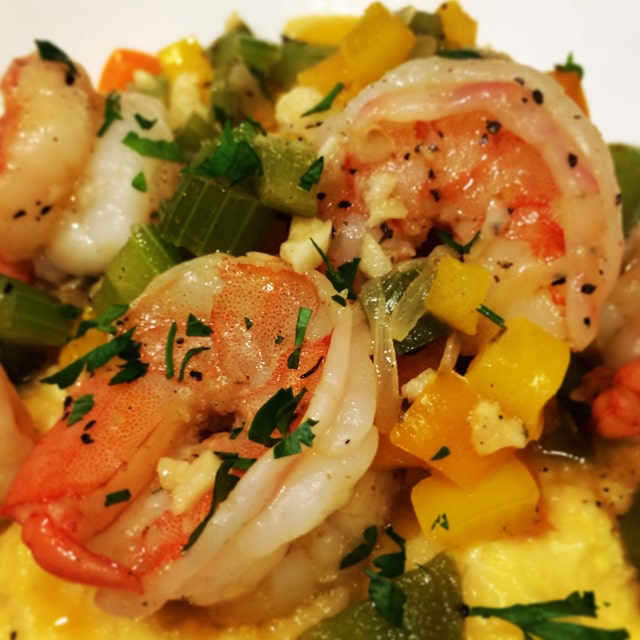
-

-
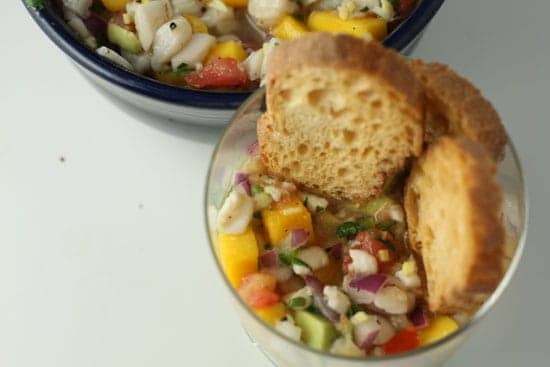
-

-

-

-
![Thai Shrimp Curry Image]()
-
![CIOPPINO Image]()
-
![Artichoke and Shrimp Risotto Recipe Image]()
-
![Mexican Shrimp Cocktail Image]()
-
![Sautéed Shrimp with Tropical Fruit Salsa Recipe Image]()
-
![Sizzling Rice Soup With Chicken Recipe Image]()
-
![Chicken Coconut Soup (Tom Kah Gai) From 'Everyday Thai Cooking' Image]()
-
![Crispy Pan-Fried Noodle Cakes With Seafood Recipe Image]()
-
-
![Skillet Rice Noodle Bowl with Shrimp and Vegetables Recipe Image]()
-
![Seafood Pancakes Recipe Image]()
-
-
![Skillet Pesto Pasta with Shrimp and Pine Nuts Recipe Image]()
-
![Tempura Vegetables and/or Shrimp Recipe | The Food Lab Image]()
-
![Dinner Tonight: Seafood Salad Tacos Recipe Image]()
-
![Shrimp and Linguine Bake With Mozzarella Cheese Recipe Image]()
-
![Grilled Shrimp Tacos Image]()
-
![Kung Pao Shrimp Recipe With Chilies and Cashews Image]()
-
![Tasty Thai Shrimp Curry Image]()
-
![Puerto Rican Shrimp Recipe in a Tomato Based Sauce Image]()
-
![Chicken and Shrimp With Red Pasta Sauce Recipe Image]()
-
![Croatian Shrimp (Skampi Na Buzara) Recipe Image]()
-
![Seafood Mango Stir-Fry Recipe Image]()
-
![Recipe for Shrimp Paella, Peruvian Style Image]()
-
![Peel-and-Eat Shrimp Recipe Image]()
-
![Grilled Shrimp With Lemon Butter Recipe Image]()
-
![Fideuà: A Delicious Valencian Noodle Paella Recipe Image]()
-
![Classic Shrimp Creole Recipe Image]()
-
![Stephanie's Curried Ginger and Peanut Shrimp Image]()
-
![Garlic Shrimp & Sun-Dried Tomatoes Image]()
-
![Shrimp and Rice Salad With Peas and Celery Image]()
-
![Shrimp Ceviche Recipe Image]()
-
![Classic Prawn Cocktail Recipe Image]()
-
![Seafood Paella With Pork and Chicken Recipe Image]()
-
![Shrimp Cocktail Image]()
-
![Beaufort Stew Recipe (Low Country Boil) Image]()
-
![Hot Stone Cooking Tips and Sauces Image]()
-
![Juicy Grilled Shrimp Kabobs Image]()
-
![Baked Cream Cheese Pasta with Shrimp Image]()
-
![Slow Cooker Grits and Shrimp Image]()



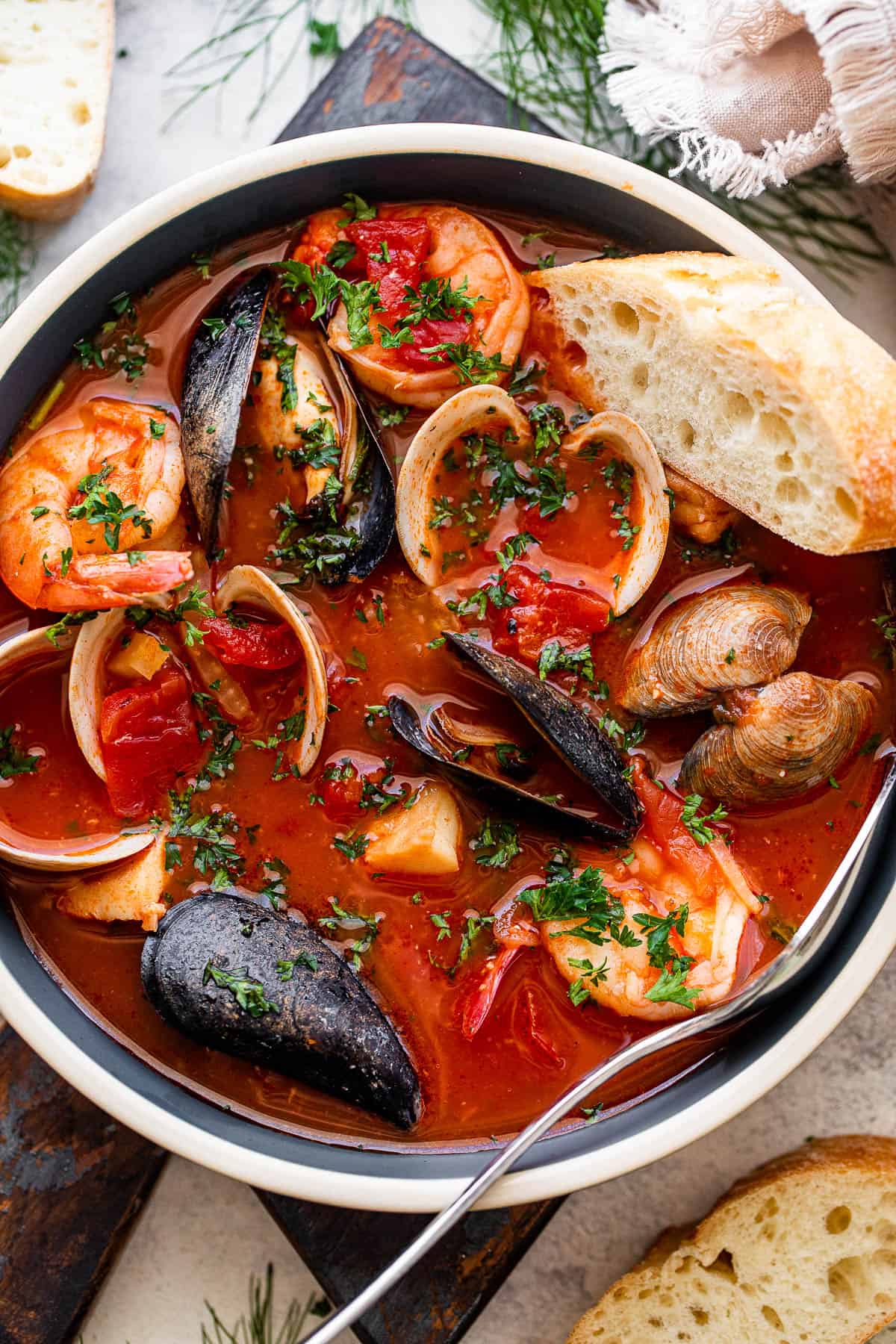
:max_bytes(150000):strip_icc()/__opt__aboutcom__coeus__resources__content_migration__simply_recipes__uploads__2015__03__artichoke-shrimp-risotto-horiz-600-e4949d4cd0bd405bb902586c4646984e.jpg)
:max_bytes(150000):strip_icc()/Simply-Recipes-Mexican-Shrimp-Cocktail-LEAD-8-NEW1-20a270bebb2a4094b02e542e9ac8e42f.jpg)
:max_bytes(150000):strip_icc()/__opt__aboutcom__coeus__resources__content_migration__simply_recipes__uploads__2009__04__sauteed-shrimp-tropical-salsa-horiz-a-1600-9df6c1027e4d47deab29d2c4de289c0a.jpg)
:max_bytes(150000):strip_icc()/sizzling-rice-soup-recipe-695041-Hero_01-636f49948ba848519531596fb4c9b880.jpg)
:max_bytes(150000):strip_icc()/__opt__aboutcom__coeus__resources__content_migration__serious_eats__seriouseats.com__recipes__images__2013__09__100113-267919-cook-the-book-tom-kah-gai.jpg-fdacc81b83224bedb9d621dcbb05852d.jpg)
:max_bytes(150000):strip_icc()/__opt__aboutcom__coeus__resources__content_migration__serious_eats__seriouseats.com__recipes__images__2014__05__20140428-panfried-noodles-seafood-18-1a90aba810494c238b45dbad9db03f35.jpg)
:max_bytes(150000):strip_icc()/__opt__aboutcom__coeus__resources__content_migration__serious_eats__seriouseats.com__recipes__images__2013__04__20130422-shrimp-noodles-925ae180067d457db97deeb58116d674.jpg)
:max_bytes(150000):strip_icc()/__opt__aboutcom__coeus__resources__content_migration__serious_eats__seriouseats.com__recipes__images__2012__01__01142011-187467-sunday-brunch-seafood-pancakes-primary-8dc8a6430f574f69affae4d86e15aeba.jpg)
:max_bytes(150000):strip_icc()/__opt__aboutcom__coeus__resources__content_migration__serious_eats__seriouseats.com__recipes__images__2013__04__20130422-skillet-pesto-pasta-shrimp-fe8dadd8ee284af99dc52518d6823b25.jpg)
:max_bytes(150000):strip_icc()/__opt__aboutcom__coeus__resources__content_migration__serious_eats__seriouseats.com__recipes__images__2017__09__20170919-sweet-potato-tempura-kenji-f4ceeeb88d194386af758f0e1977510e.jpg)
:max_bytes(150000):strip_icc()/__opt__aboutcom__coeus__resources__content_migration__serious_eats__seriouseats.com__recipes__images__20070716dtsftacos-fb1cb7edf38842f794a12ff7122a7fda.jpg)
:max_bytes(150000):strip_icc()/shrimp-peas-92385562-1--56b720865f9b5829f836952b.jpg)
:max_bytes(150000):strip_icc()/grilledshrimptacos-final-5c89ae0f46e0fb00010f11d1.jpg)
/kung-pao-shrimp-175601232-58939e473df78caebcdd0bfd.jpg)
/ThaiShrimpCurry-590c6faa3df78c9283e0c585.jpg)
/shrimp-72323015-59009c035f9b581d59b66a24.jpg)
:max_bytes(150000):strip_icc()/chicken-shrimp-with-red-sauce-5ae7481318ba010037572bcf.jpg)
:max_bytes(150000):strip_icc()/shrimp-and-sausage-gumbo-165857377-59a4510a685fbe00102f1cd6.jpg)
:max_bytes(150000):strip_icc()/mango-at-the-market-506813675-587e60f53df78c17b6967f5e.jpg)
/833253490_947ef665d2_o-588a91823df78caebc615e0d.jpg)
:max_bytes(150000):strip_icc()/SeasonedShrimp-56a8f53e5f9b58b7d0f6b1b5.jpg)
/grilled-shrimp-with-lemon-butter-2216616_Hero-5babb147c9e77c0025e4b118.jpg)
:max_bytes(150000):strip_icc()/fideua-511599227-5c855450c9e77c0001a67661.jpg)
:max_bytes(150000):strip_icc()/classic-shrimp-creole-with-rice-3052305-hero-01-fe5442ed66114b87b9eab6fb0c4ef854.jpg)
/shrimp-curry-71576961-57bbc79e3df78c87636664bd.jpg)
:max_bytes(150000):strip_icc()/GettyImages-185272553-56a8d3475f9b58b7d0f57b56.jpg)
:max_bytes(150000):strip_icc()/shrimp-rice-salad-18-56b71e1a3df78c0b135dd900.jpg)
/mexican-shrimp-ceviche-2342731-f3c322fb300845178de3658ad9ae42be.jpg)
/close-up-of-prawns-over-white-background-930793848-5c3e7210c9e77c00019b9c5c.jpg)
:max_bytes(150000):strip_icc()/fresh-paella-in-pan-on-wooden-table-556668991-5843564b5f9b5851e5745d5a.jpg)
/shrimp-cocktail-4774005-07-58fd8a98bc10484a99f604972bf232c6.jpg)
:max_bytes(150000):strip_icc()/low-country-boil-82016-57a78bdb5f9b58974a596451.jpg)
:max_bytes(150000):strip_icc()/hot-stone-cooking-59a88a4722fa3a001156acd7.jpg)
